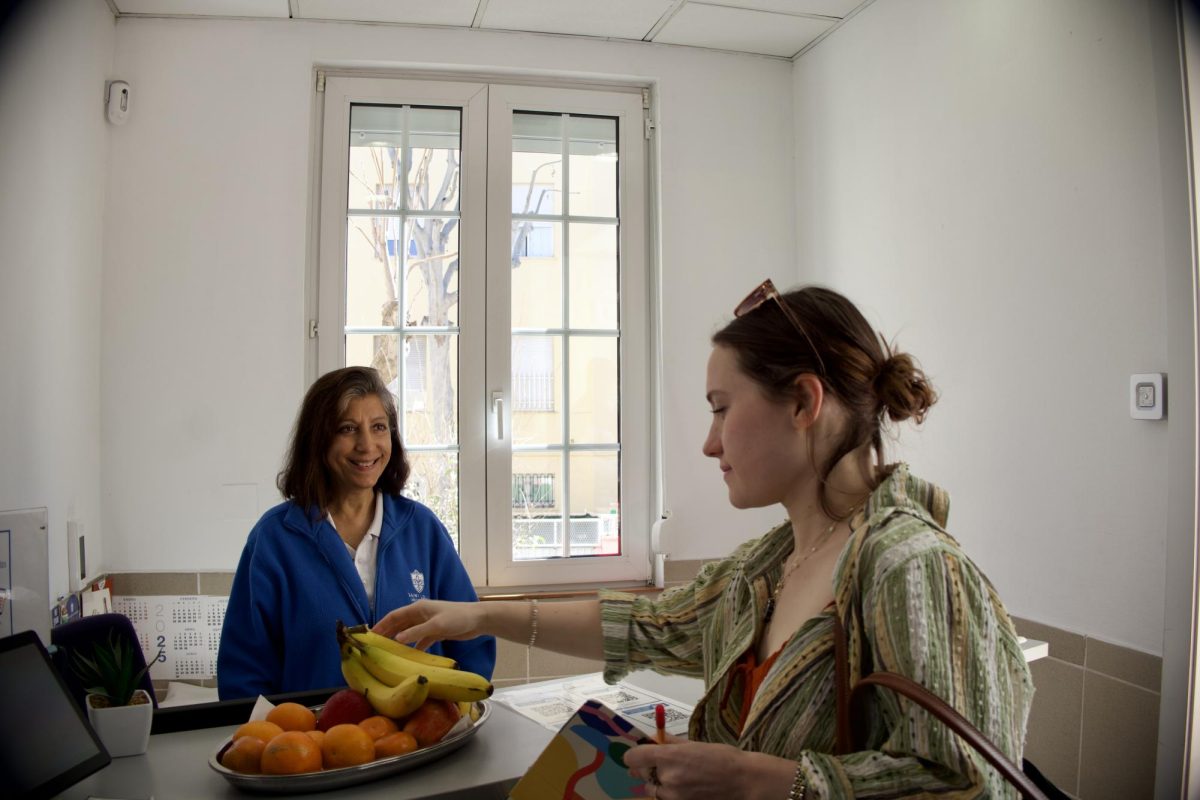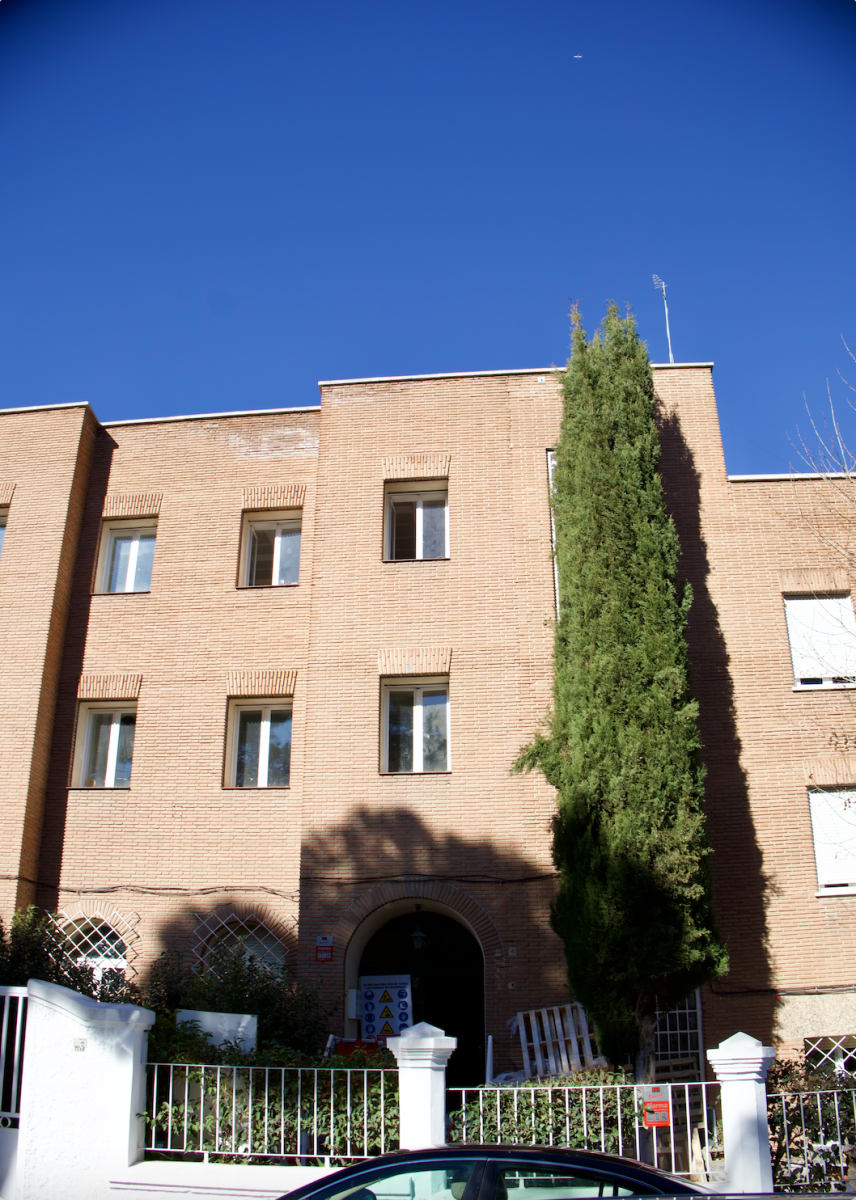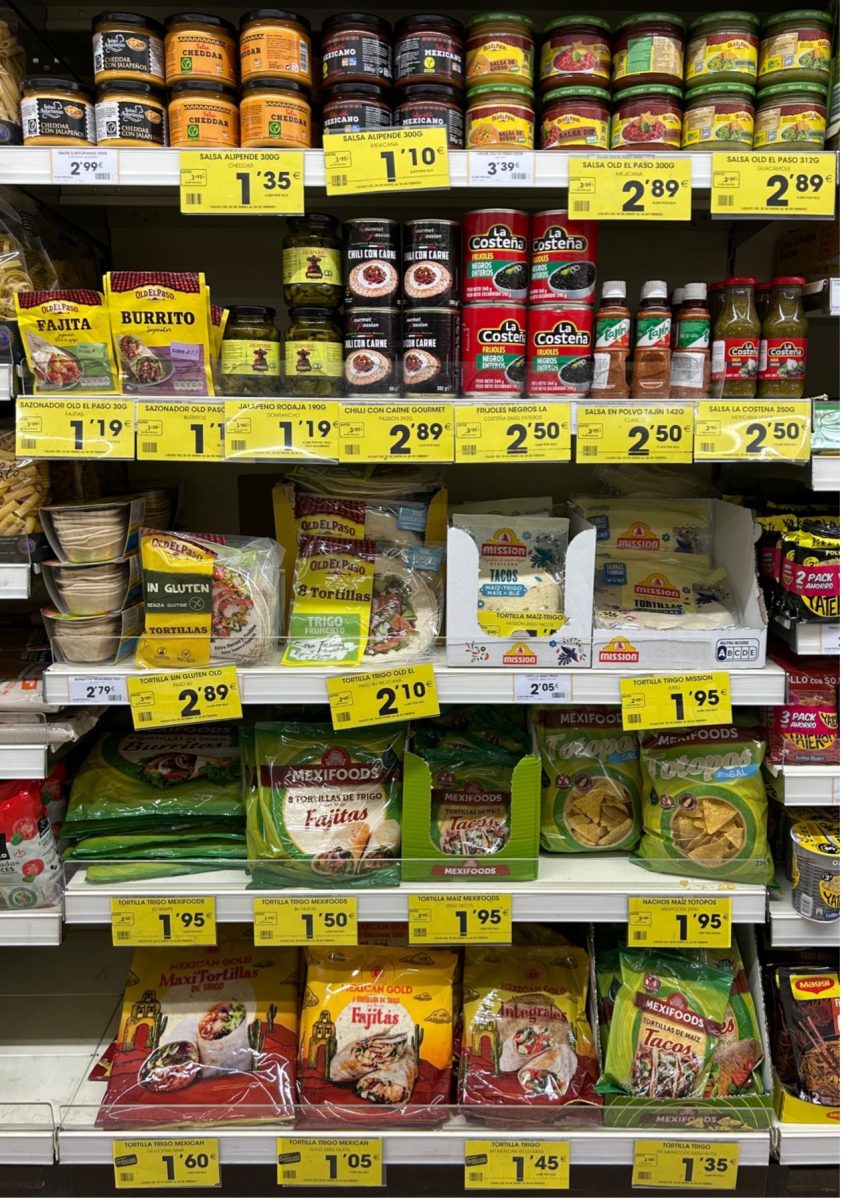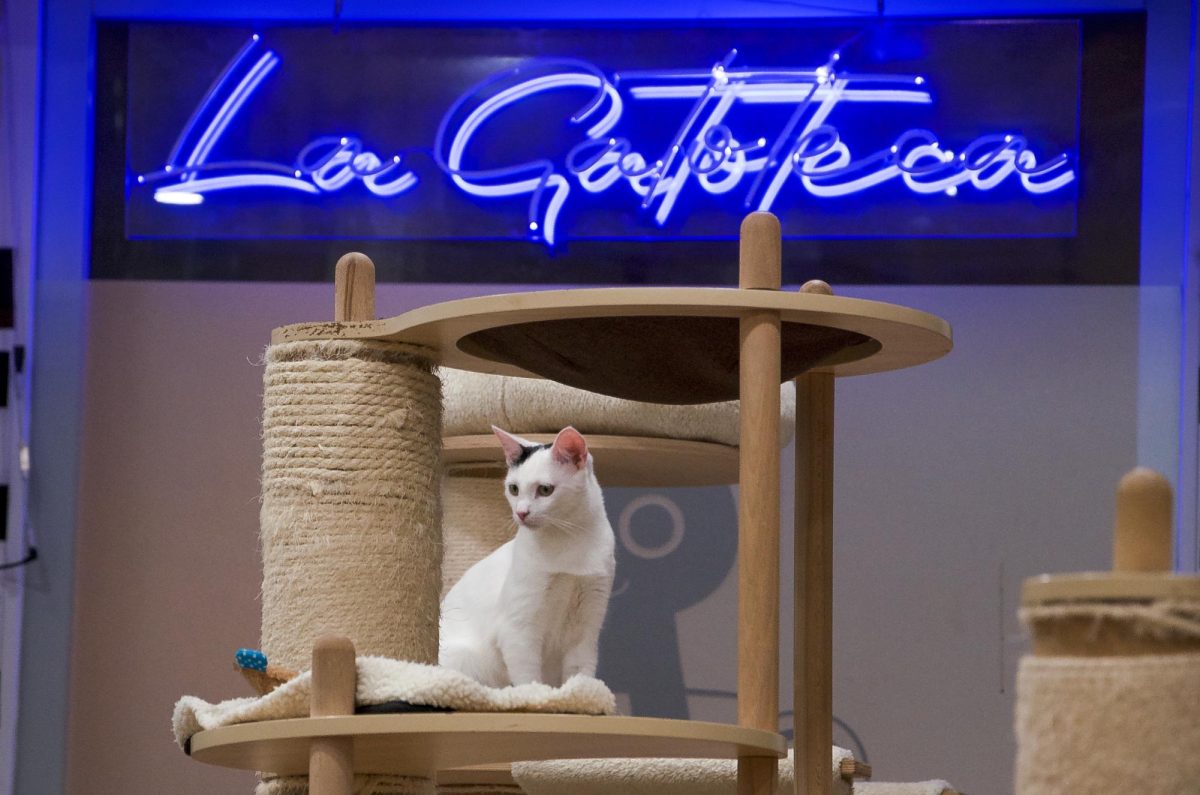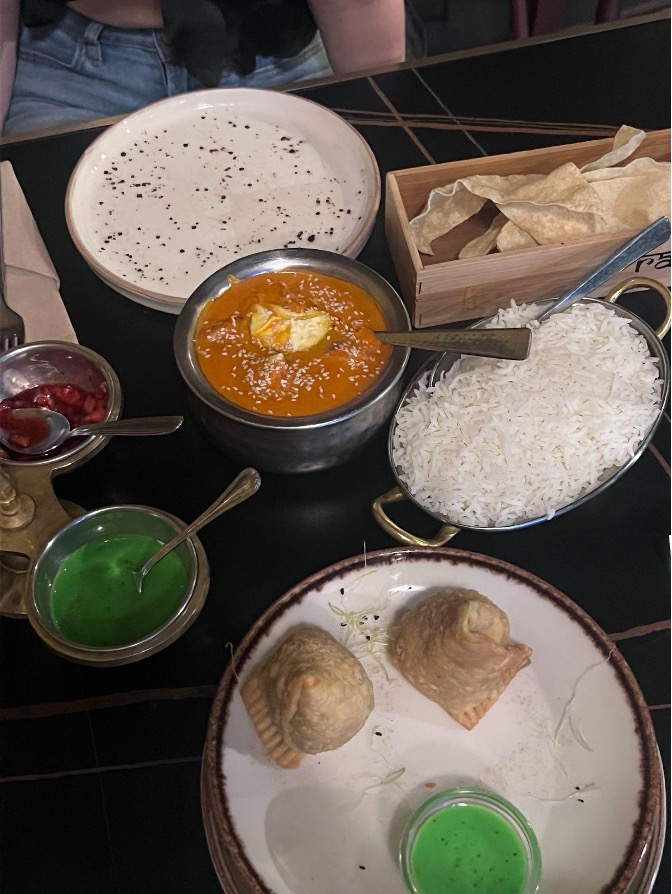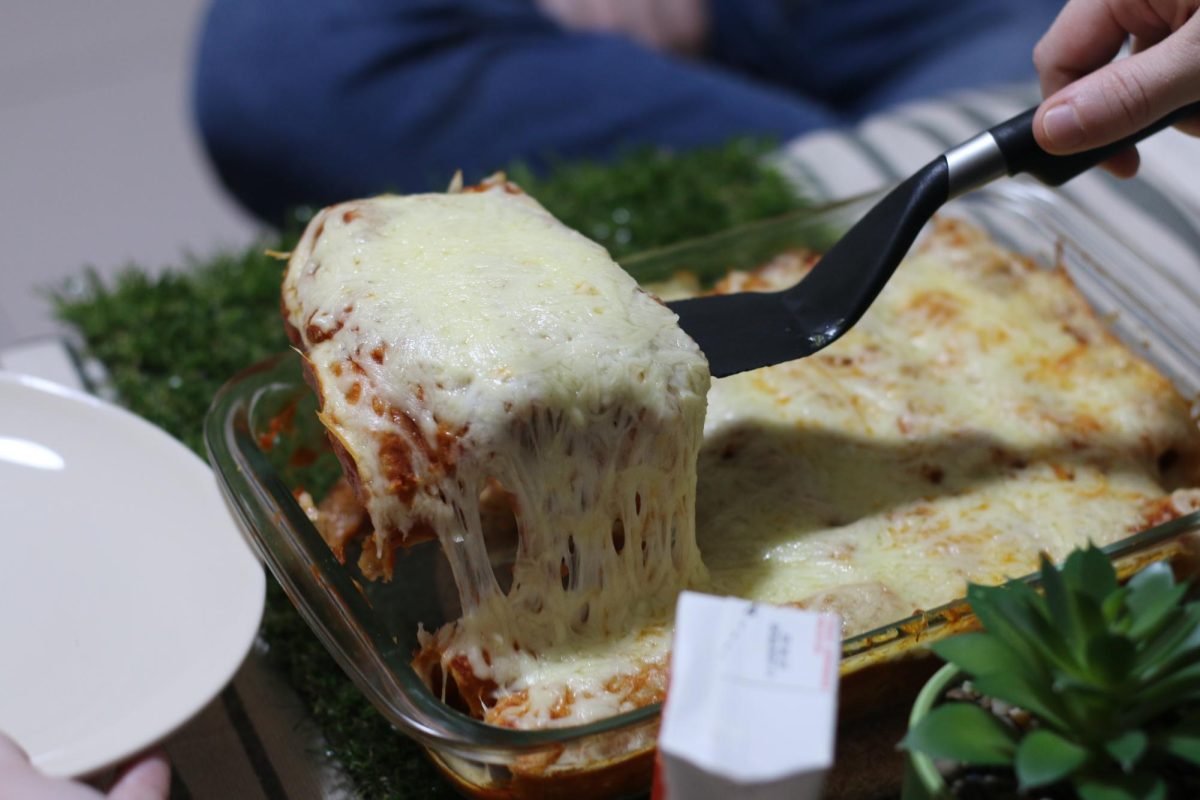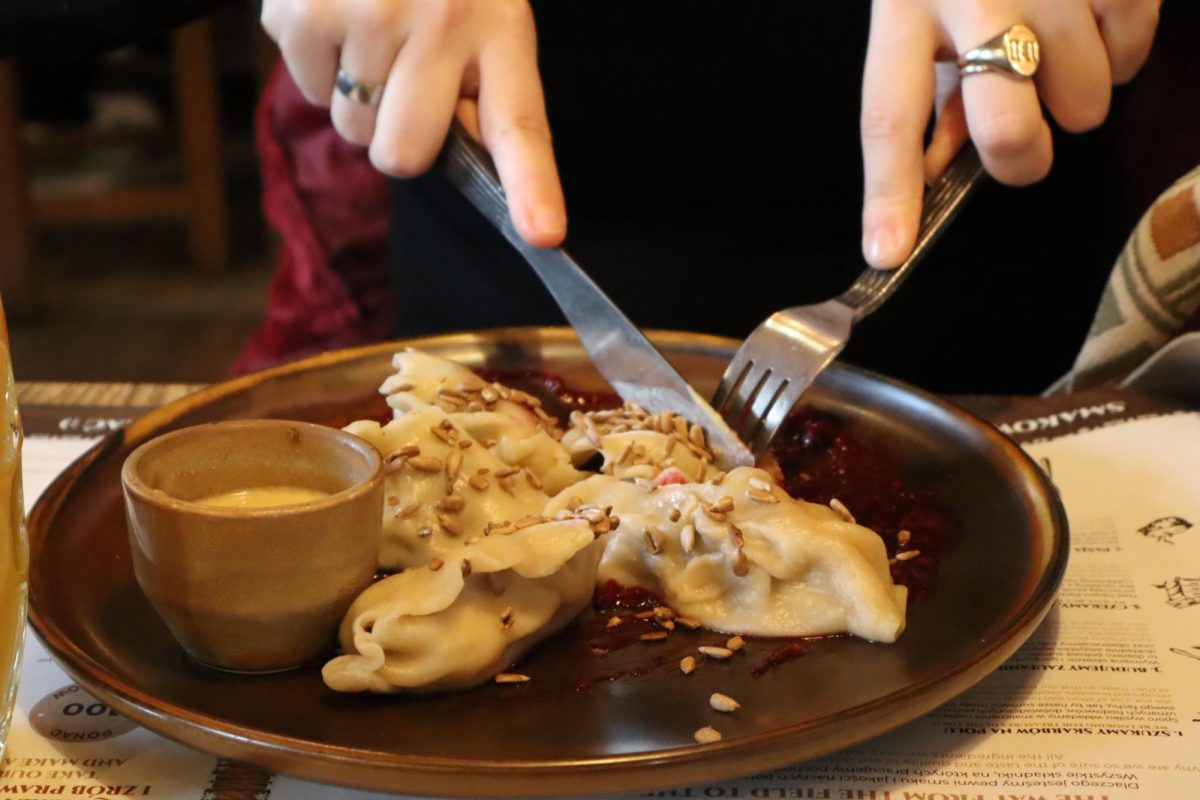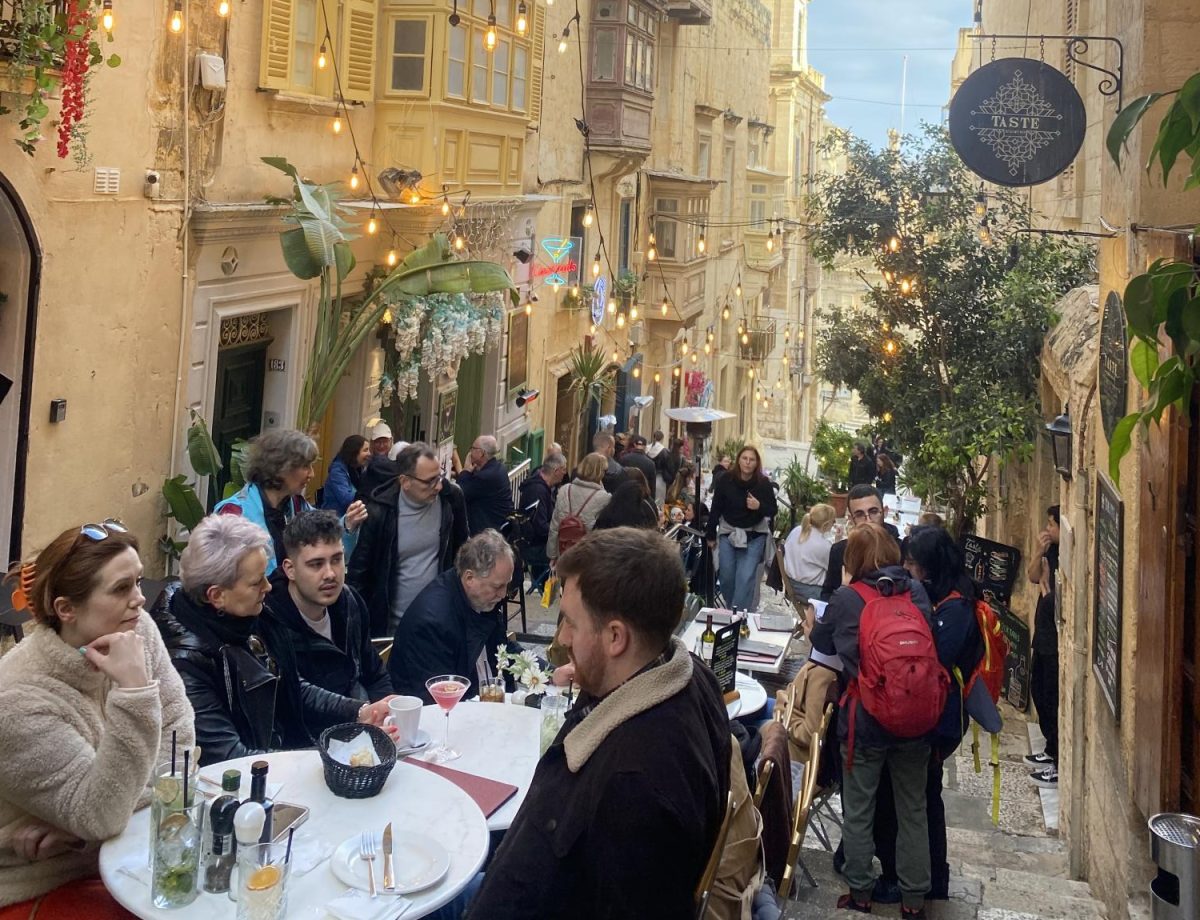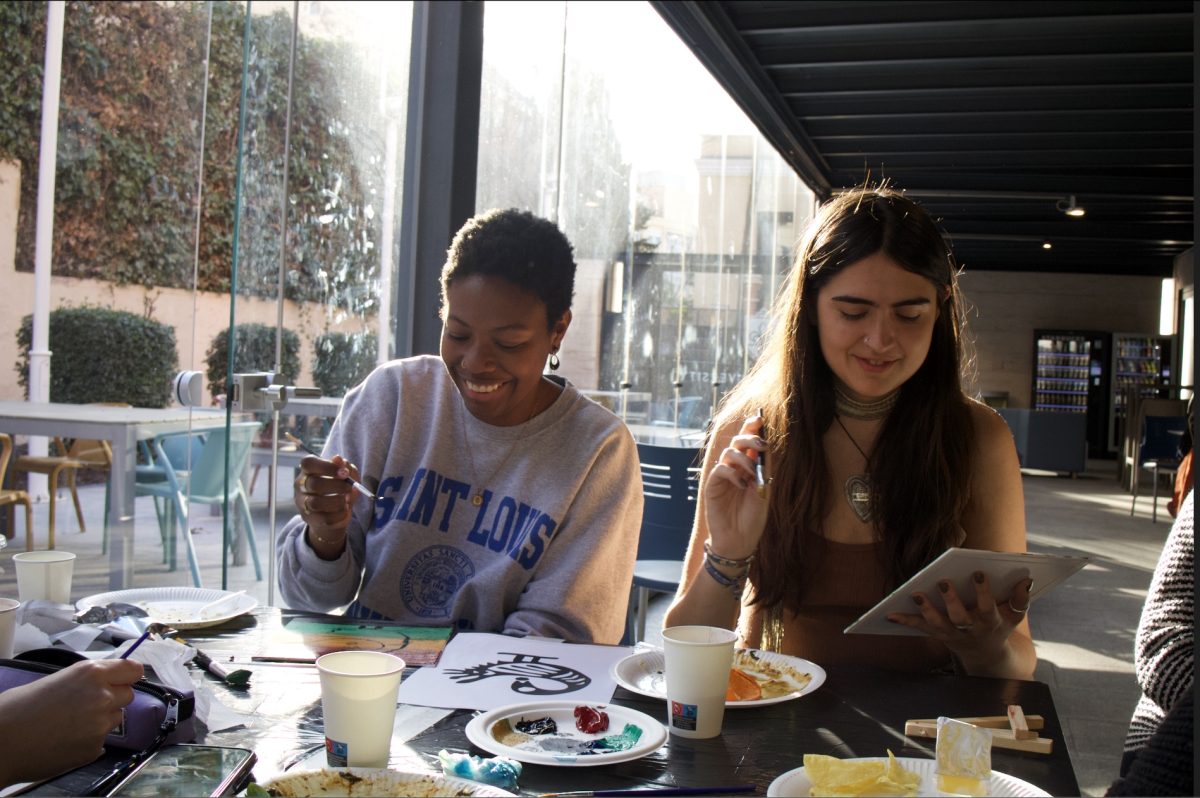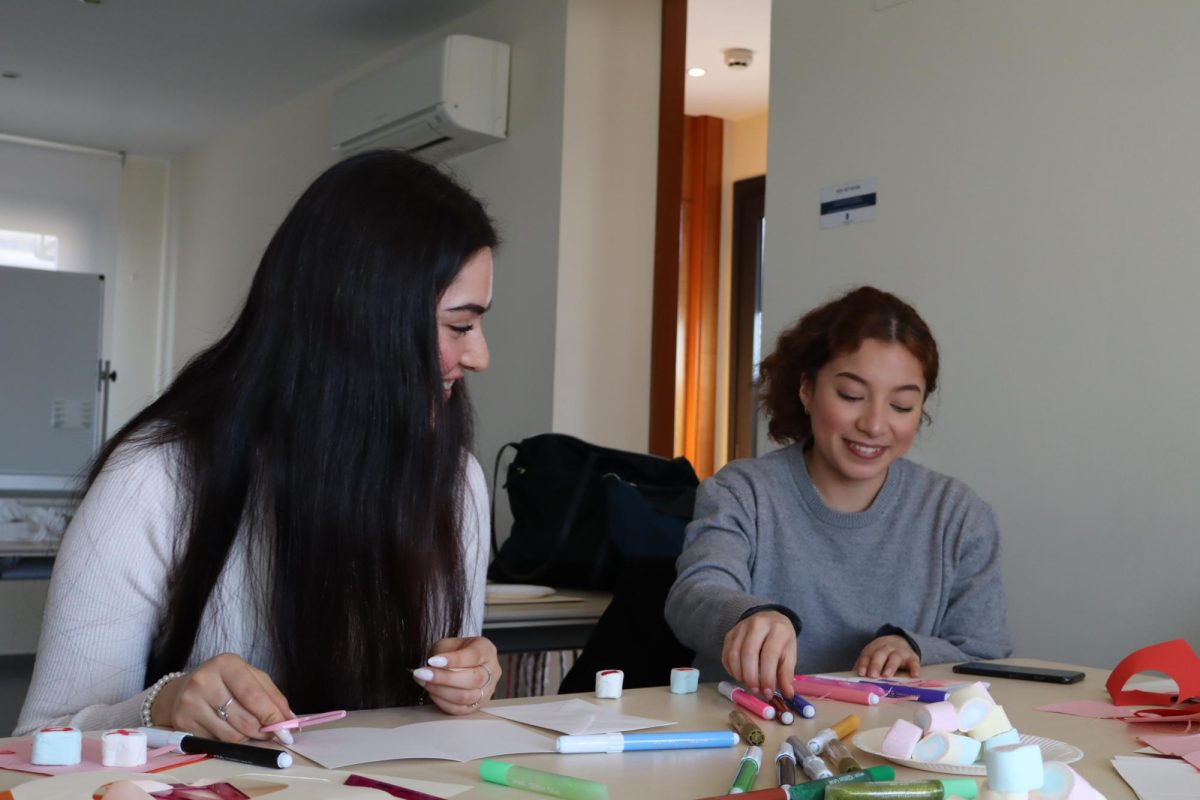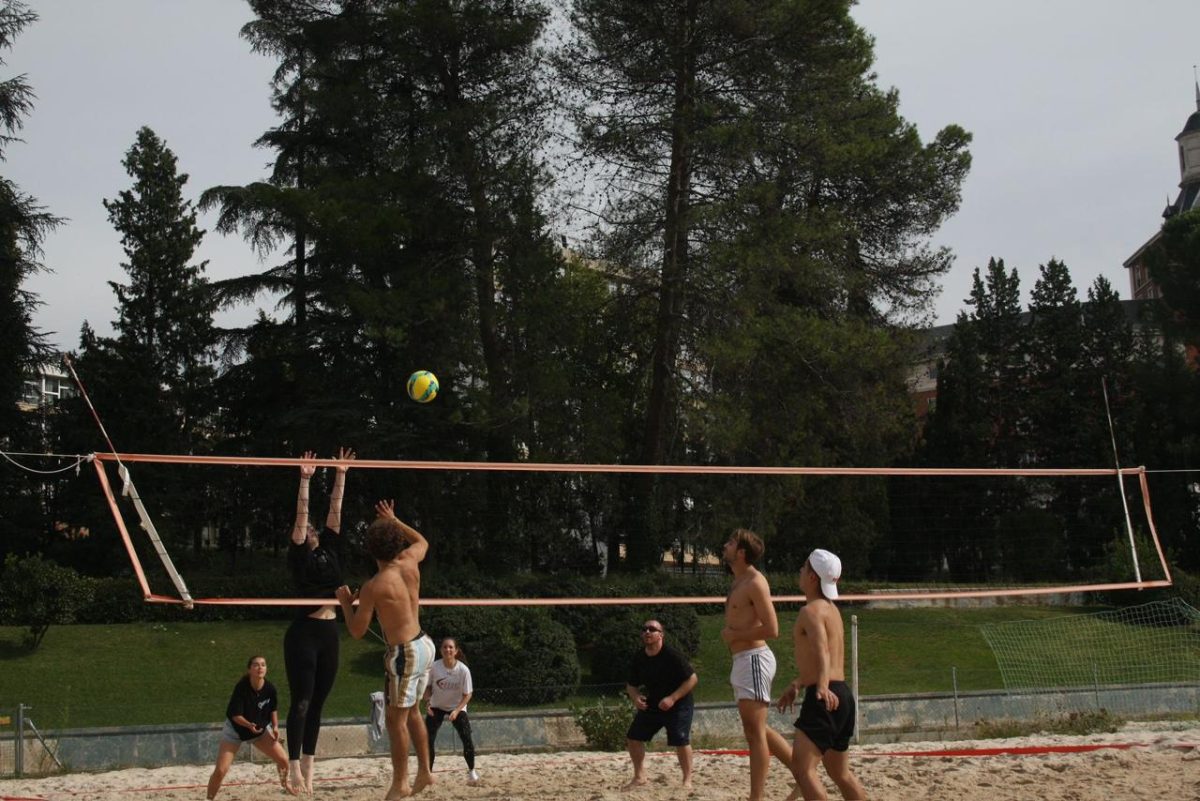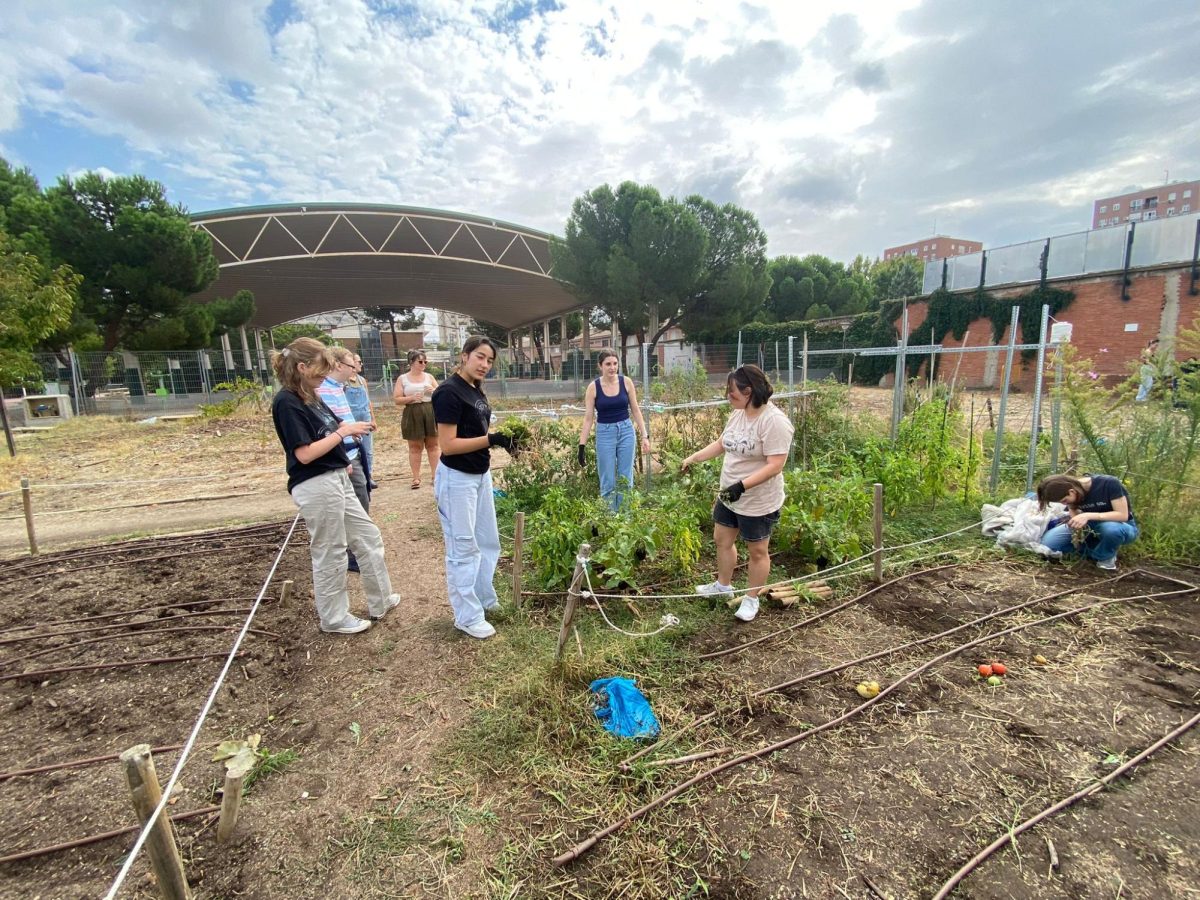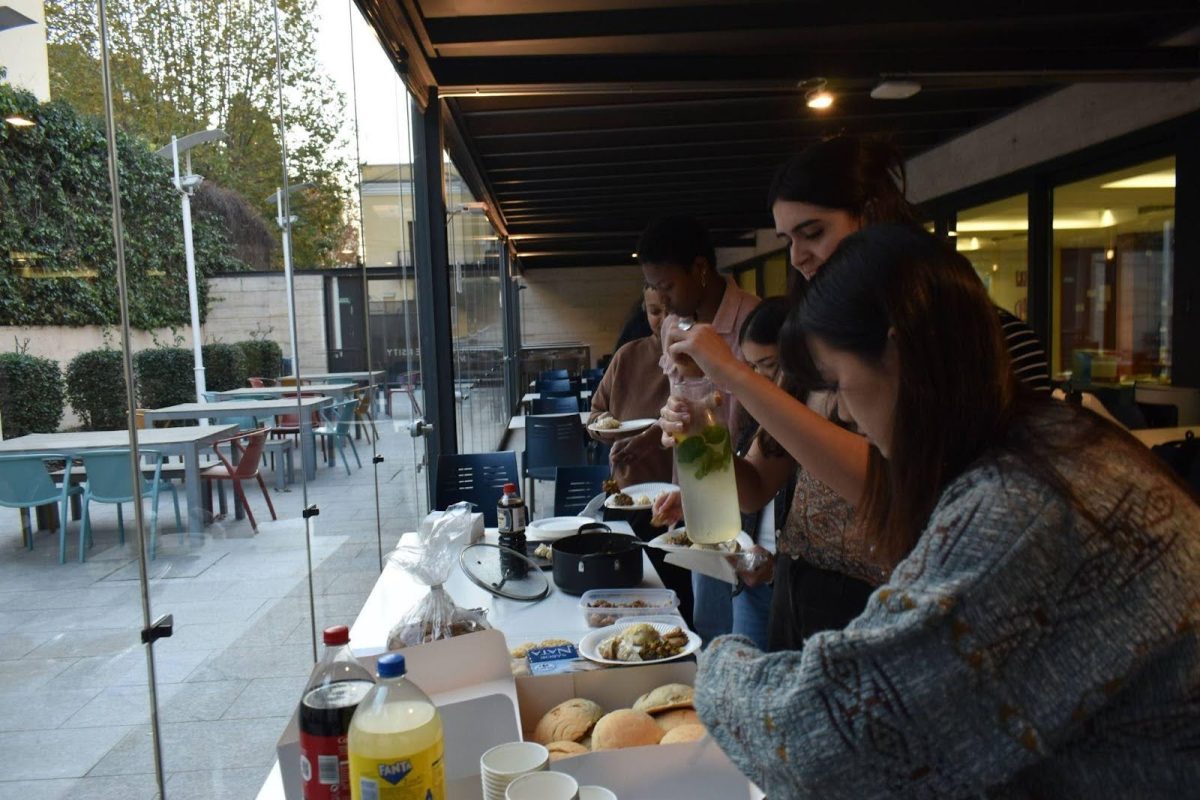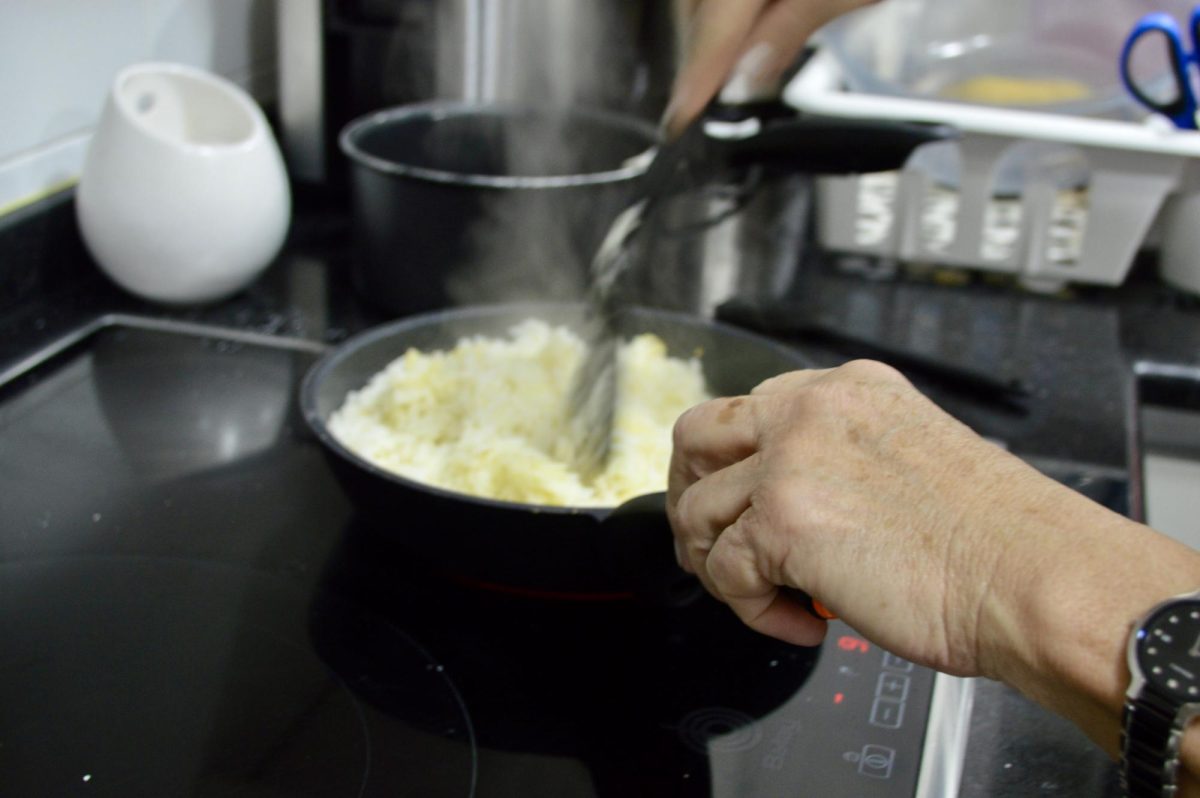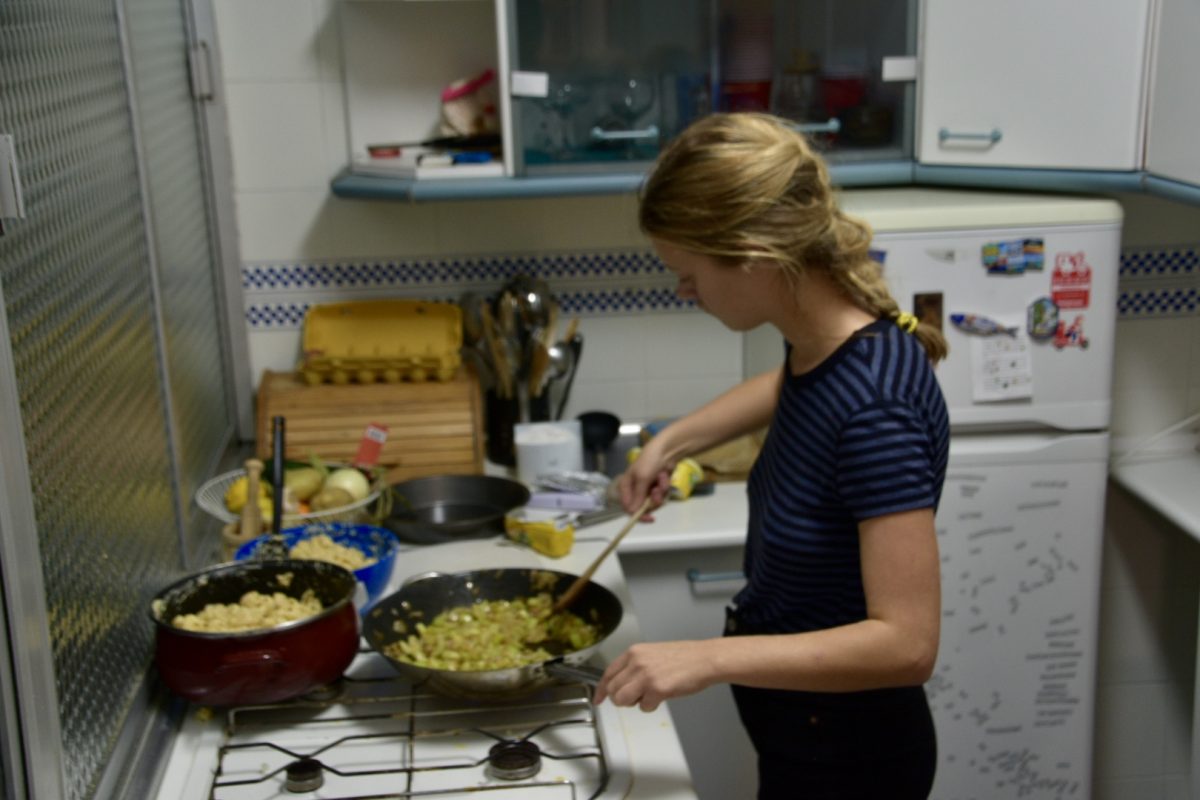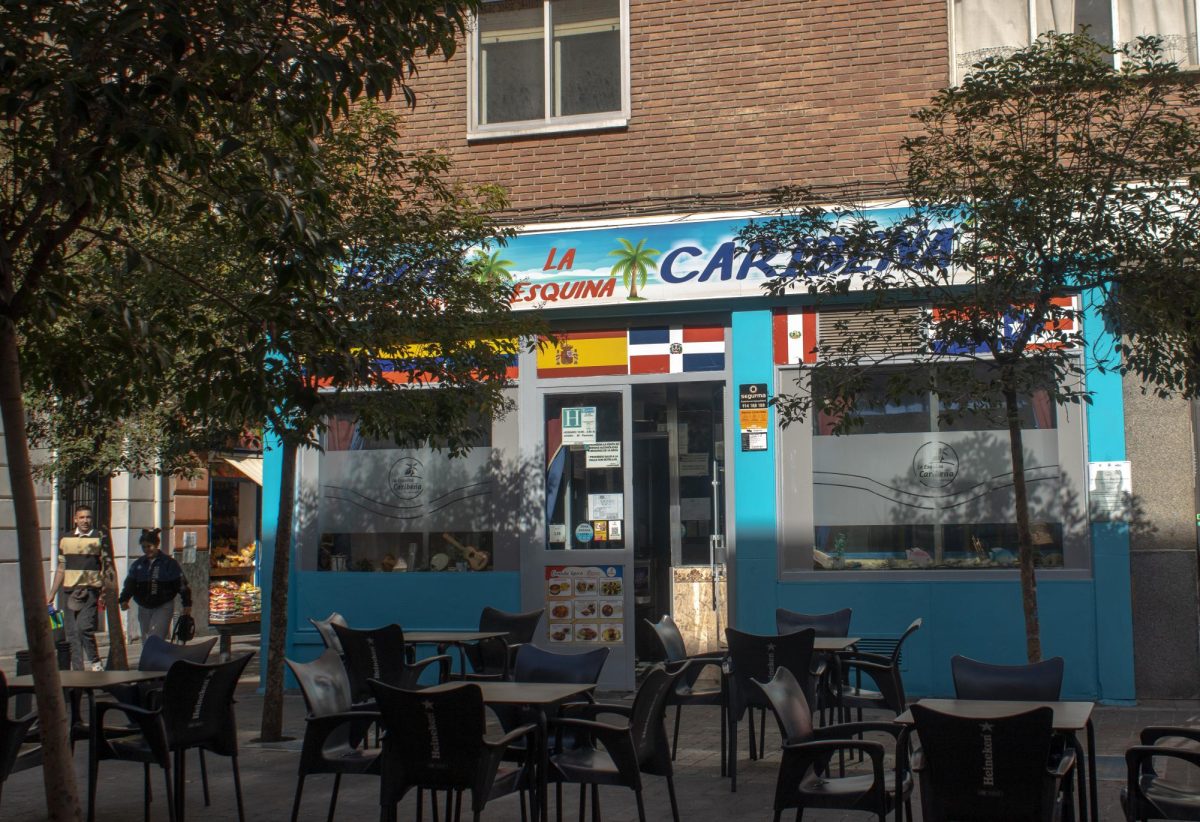Tucked between two microwaves and a crate full of washed lettuce, in the furthermost corner of a small kitchen that can only be accessed by crawling under the wooden door of a fully-stocked bar, Doña Juana stirs Mondongo (cow tripe) stew in one of the 6 boiling pots in front of her.
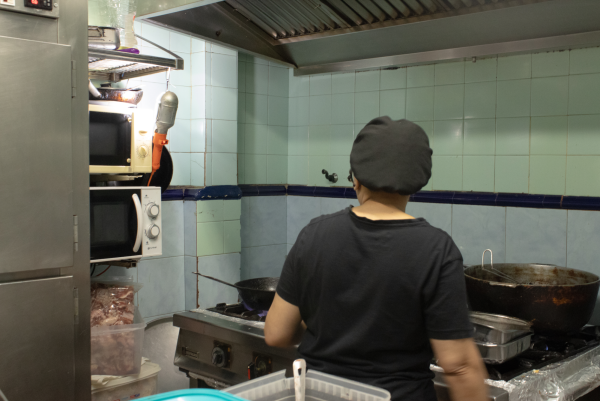
“The Mondongo isn’t the same here as it is back home, you know,” she says, turning to move it away from the heat. “They clean it too well.”
The steaming pot is almost half her size. She carries it across the kitchen with ease and sets it down inside the oil-stained sink “too cool,” shoving dirty knives and graters out of her way.
Doña Juana is the main chef of La Esquina Caribeña, a Dominican restaurant located in Calle Almansa, about a 5 minute walk from the Cuatro Caminos metro station in Madrid. The neighborhood is known for its vast population of Dominican immigrants, many of whom rely on this restaurant for their weekly (or even daily, for some) fix of home-reminiscent food. La Esquina has been in business for 29 years, and Juana has cooked there for around 23 of them… possibly more.
“When you’ve done something for so long, you start to lose count,” she says, wiping sweat off her forehead with her elbow.
She has been in the kitchen since 9:30 a.m., and will be here until around 8 o’clock at night. First she boiled the beans, then the rice. Then she sliced 24 avocados before moving on to frying. Around 70 peeled plantains sit in a plastic moving box under drain pipes, awaiting their turn to be flattened and turned into Tostones.
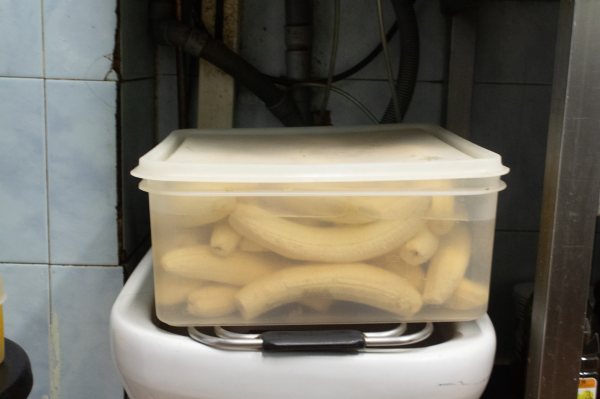
It is 1:30 p.m. now. From the other side of the bar, waiter and host Marcelino wraps knives, forks and spoons into paper napkins and sets them on clothed wooden tables, preparing for lunch service. He has worked in La Esquina for 11 years, and the tasks of preparing the restaurant for guests has become like second nature.
“I’ve developed a habit of picking up the phone with a Spanish accent and then dropping it when I realize the people calling are paisanos,” he says, referring to fellow Dominicans.
“It’s almost always paisanos calling, unless it’s someone selling a phone plan.”
He’s arranging bottles of Mamajuana against a windowsill. They make this notoriously strong liquor in-house, marinating herbs and bark in Brugal rum to give out courtesy shots of it to frequent customers.
Marcelino has noticed that most of the people and families who come into the restaurant are recurring customers. Dominicans living in Madrid have made it their gathering spot, and come from all parts of the city for a fix of rice and Presidente beer.
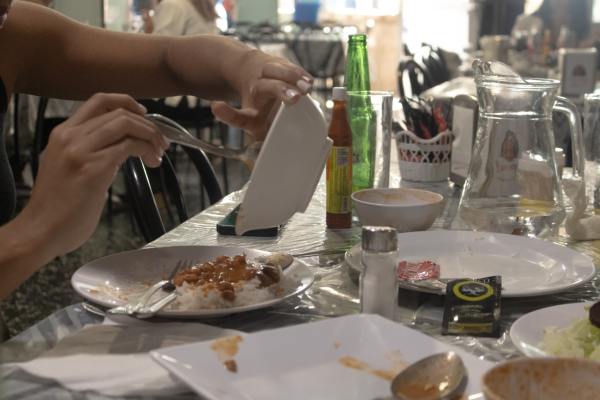
Daniela García, a regular who has been studying in Madrid for the last 3 years, notes that while La Esquina is the best place in Madrid to find authentic Dominican food, it’s also a great place to find community.
“I came here on the 27th and the whole place was packed. It was crazy,” she says, referring to Dominican Independence Day, celebrated on February 27th. “It’s the closest to the DR that you can get without flying home.”
The large restaurant does, in fact, seem to be made to remind foreigners of home. With lunchtime in full swing, large groups and families with young children yell out loudly at Marcelino for more water or more beans. Printed pictures of popular Dominican beaches crinkle at the edges and hang crookedly from walls. Inside the women’s bathroom stall, stuck to a strawberry condom dispenser, a bold-lettered ad promotes a taxi service in the Santo Domingo airport.
Behind the bar, Mary and Jesus stare out at the dining tables from several framed images. Next to them, bartender and occasional cook Mari sorts through the ingredients for Morisoñando (orange juice and whole milk).
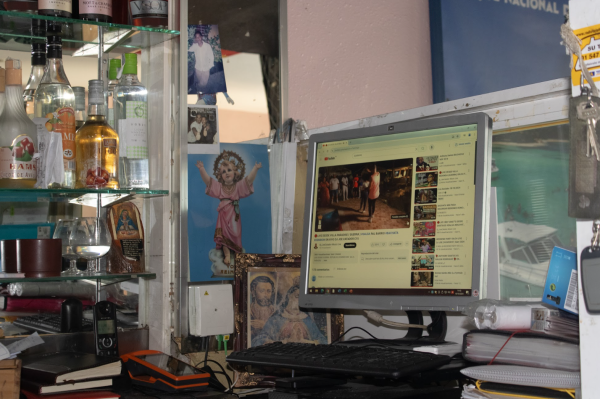
“A lot of the people who come here miss their country, and we do too,” she says, moving to click through Youtube medleys of Bachata music on the reception computer.
She has worked in La Esquina since she moved to Madrid, 7 years ago, and is thankful to the restaurant for keeping her close to home.
“I came in search of a future,” she shrugs, then gestures around the room of loudly chattering families and busy, smiling servers. “Don’t we all?”

